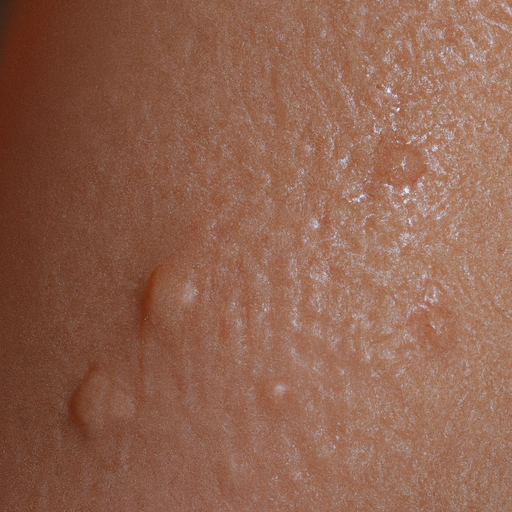As a dermatologist, I have encountered countless patients struggling with oily skin. It is a common concern that can lead to acne, blackheads, and a shiny complexion. However, oily skin can be managed effectively with the right strategies. This article aims to unmask clear skin by revealing top strategies for combating oily skin.
Firstly, it is essential to understand that oily skin is not necessarily a bad thing. The oil produced by your skin, known as sebum, plays a crucial role in maintaining skin health by providing a protective layer that prevents the loss of moisture and shields the skin from environmental damage. However, problems arise when the sebaceous glands produce an excess amount of sebum, leading to oily skin.
One of the most effective strategies for managing oily skin is maintaining a consistent skincare routine. This should include cleansing, toning, and moisturizing. Cleansing is vital to remove excess oil and impurities from the skin. However, it is important not to over-cleanse as this can strip the skin of its natural oils, causing it to produce more oil to compensate. Opt for a gentle, water-soluble cleanser that is specifically designed for oily skin.
Toning helps to balance the skin’s pH levels and remove any residual oil or dirt left behind after cleansing. Look for alcohol-free toners with ingredients like witch hazel or salicylic acid, which can help control oil production without drying out the skin.
Despite what you may think, moisturizing is also crucial for oily skin. Skipping this step can cause your skin to produce more oil to compensate for the lack of moisture. Choose an oil-free, non-comedogenic moisturizer that won’t clog your pores.
Another effective strategy for combating oily skin is regular exfoliation. This helps to remove dead skin cells that can clog pores and increase oil production. However, be careful not to over-exfoliate as this can irritate the skin and trigger more oil production. Aim to exfoliate once or twice a week with a gentle, chemical exfoliant.
Diet also plays a significant role in skin health. Consuming a diet high in processed foods, sugars, and unhealthy fats can stimulate oil production. Instead, opt for a balanced diet rich in fruits, vegetables, lean proteins, and healthy fats. Hydration is also key; drinking plenty of water can help maintain the skin’s moisture balance and reduce oiliness.
Lastly, don’t forget about the importance of sun protection. Sun exposure can trigger oil production and lead to other skin problems like premature aging and skin cancer. Always wear a broad-spectrum sunscreen with an SPF of at least 30, even on cloudy days.
In conclusion, combating oily skin requires a combination of consistent skincare, a healthy diet, and sun protection. It may take some trial and error to find the right products and routine for your skin, but with patience and persistence, you can achieve a clear, oil-free complexion. Remember, if you’re struggling with oily skin, it’s always best to consult with a dermatologist who can provide personalized advice based on your specific skin type and concerns.



